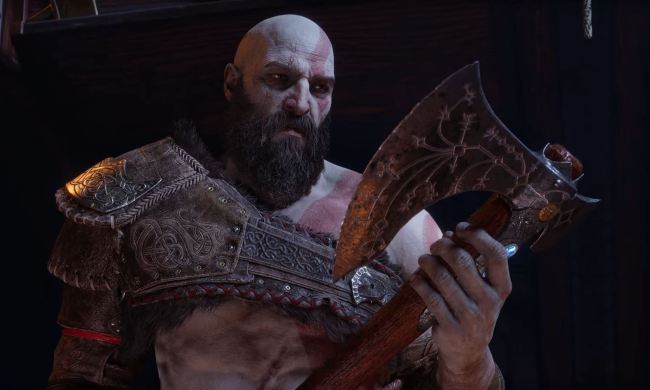
In case you weren’t aware, there’s a movie in the earliest stages of production based on Sony’s God Of War video game series. Assuming you haven’t been dead for the last half-decade this shouldn’t come as much surprise to you since, well, God Of War is a successful game franchise so of course someone would want to turn it into a movie. That’s how Hollywood works now, whether we like it or not.
As our cynical grumbling won’t do anything to make the eventual film more palatable, and it’s far too early to reasonably speculate on this thing’s potential, we were happy to see that the lovely people over at JoBlo had recently conducted an interview with Patrick Melton and Marcus Dunstan, the two men tapped to write the script for the God Of War movie. Perhaps the duo might be able to offer some reassurance as they explain how they’re adapting the story seen in Sony’s games for theaters:
In the same way that Batman was grounded with Christopher Nolan’s rendition, we were attempting to do that with Kratos so that when we meet him — like they’re doing in this newest game, which is sort of a prequel to the original — we’re seeing him before he became the Ghost of Sparta, when he was just a Spartan warrior and he had family and kids.”
In the game … there’s that attack from the barbarians and Kratos has to call upon Ares to help him. Really, that’s going to be our first act break. Before then, he’s going to be mortal, and he’s going to have his family. We’re going to learn about him and understand how he operates. So it’s potentially 30 minutes — give or take — of building up this character so that, when he does turn and becomes the Ghost of Sparta, we understand him as a human and we understand the journey that he’s going to take. We’re emotionally invested, so that it could go beyond just this one movie.
Alright, that seems a bit derivative, but then again it worked quite nicely in Batman Begins and it’s not like we had any preconceived notions about how amazingly well Chrisopher Nolan could capture the spirit of DC Comics’ Batman books before that film hit theaters. For all we know Dunstan and Melton’s script could be phenomenal and demonstrate an in-depth understanding of Kratos and his violent, tragic background.
Actually, given the rest of the interview, we’re growing warily optimistic about this project. Following the above quote the two men are asked about the characterization of Kratos in the movie and spend quite a while explaining how the producers behind the flick have repeatedly stressed the idea that though God Of War will certainly be an action flick full of spectacular violence and bombastic CGI, they want Kratos to be both tough-as-nails and exhibit a very human vulnerability and complex set of motivations. Specifically, they’d like to avoid the trap many recent action movies have fallen into where the lead characters are so invulnerably awesome that all possible tension is drained right out of the film. By definition it’s very difficult for the average person to relate to a literal superhuman, so Dunstan and Melton are trying to instill the theatrical Kratos with a “softer side,” for lack of a better word.
It’s a great interview, and you really should read the thing in its entirety. Not only because it might make you a bit less worried about this project, but also because I want every one of you to spend the rest of the day imagining how a screenwriter might possibly balance emotionally resonant empathy with a character who is so unflinchingly violent that he needed no alterations whatsoever to fit in alongside the cast of the most recent Mortal Kombat sequel.


